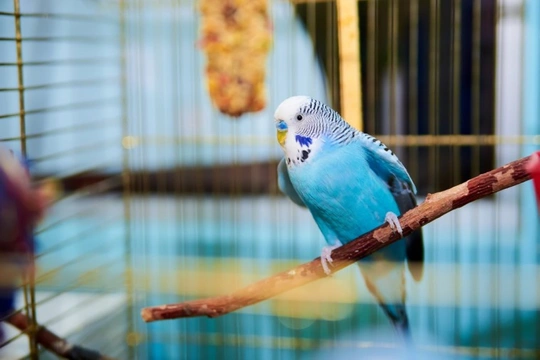
Can you make your pet bird less prone to shrieking?
Pet birds like parrots, cockatoos and budgies can be hugely rewarding to own, and their chatter, song or other vocalisations are often a huge part of the appeal. However, shrieking isn’t generally one of the pet bird noises most of us find charming or pleasant, and if your bird is prone to doing this, it can soon become quite jarring. Your neighbours probably don’t enjoy the noise much either!
So, is there anything you can do to make your pet bird less prone to shrieking if they do this a lot? This article will provide some suggestions. Read on to learn more.
Covering the cage
If your bird shrieks early in the morning or late at night, or in response to certain types of visual stimulus, covering the cage can go a long way to keeping them calm and reducing their shrieking, depending of course on why they do this.
However, it is important to do this appropriately, ensure your bird still gets enough natural light, and not use covering the cage as a punishment.
Ensure they have enough mental stimulation
A bird that is bored or that feels neglected is a bird that is likely to act out in all manner of ways, some of which are apt to be annoying and others of which can be distressing, like feather plucking.
Making sure that your bird gets enough mental stimulation is integral to keeping them happy and also, preventing and potentially reversing behavioural problems like shrieking.
Intelligent birds like parrots and cockatoos will shriek from boredom and also for attention, as they quickly learn that doing so will get a reaction out of you.
Provide plenty of interactive toys in your bird’s cage, spend plenty of quality time with them playing and engaging with them, and swap out toys for new things regularly as birds soon get bored of the same old things all the time.
Food rewards and puzzles, making your bird think and have to work out challenges and hunt to find treats are great diversions. A varied diet with plenty of different flavours and textures is important too.
Ensure their cage is large enough
If your bird’s cage is too small, they will be bored, frustrated and also uncomfortable, as you would be without enough room to move around.
If your pet bird’s cage is too small, nothing else you can do will resolve the shrieking problem, and you must get them a far larger cage as a priority, as this is a welfare issue.
Give them room to fly or move around
Birds really need to spend time every day outside of their cage, unless they have an enormous enclosure. Let them out daily with space to fly if they fly and this is possible, or simply to explore and enjoy a change of scenery and to stretch their muscles if they don’t fly or there isn’t room.
Make sure they can see things going on
If your bird is inquisitive they will probably get a lot of entertainment from being able to watch the world go by, as long as things don’t pass the windows closely enough to scare them.
Try to give your bird a good view of what’s going on outside, and also within the home; locate their cage in a room you actually use and where your bird can feel involved and able to interact with things.
Ensure their physical needs are met
A bird that is uncomfortable or feeling unwell is apt to be either very quiet or very noisy. A stable and comfortable temperature is a vital part of this, and birds are very sensitive to temperature fluctuations, which is something to bear in mind if your heating goes off at night.
The cleanliness of your bird’s cage is important too, and if it is dirty it can affect not only their health but also temperament.
Don’t reward or reinforce the noise
When it comes to intelligent birds, you can accidentally make shrieking worse or more acute by engaging with or rewarding it. If you answer your bird when they shriek, go into the room, engage with them, or otherwise show them that they can achieve something by making a shrieking noise, you’re not going to help matters but are apt to make them worse!
Ensure your bird isn’t lonely/needs a mate
Finally, some birds and bird species are far more social than others, and while some are far happier being an “only child” others will not thrive without the company of their own kind. However much time you spend with your bird and however much attention they get, some birds simply need another bird of the same species around to be happy.
Think carefully then about whether your bird might be lonely; this might be the case in a bird you’ve had since they were young if they have suddenly developed a habit of shrieking and nothing else has changed, as they may have reached or be approaching sexual maturity and be feeling the need for a mate.



